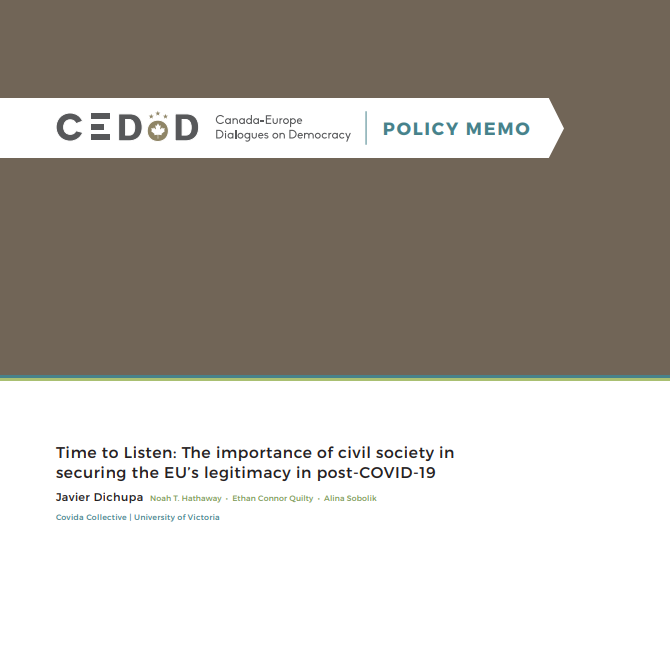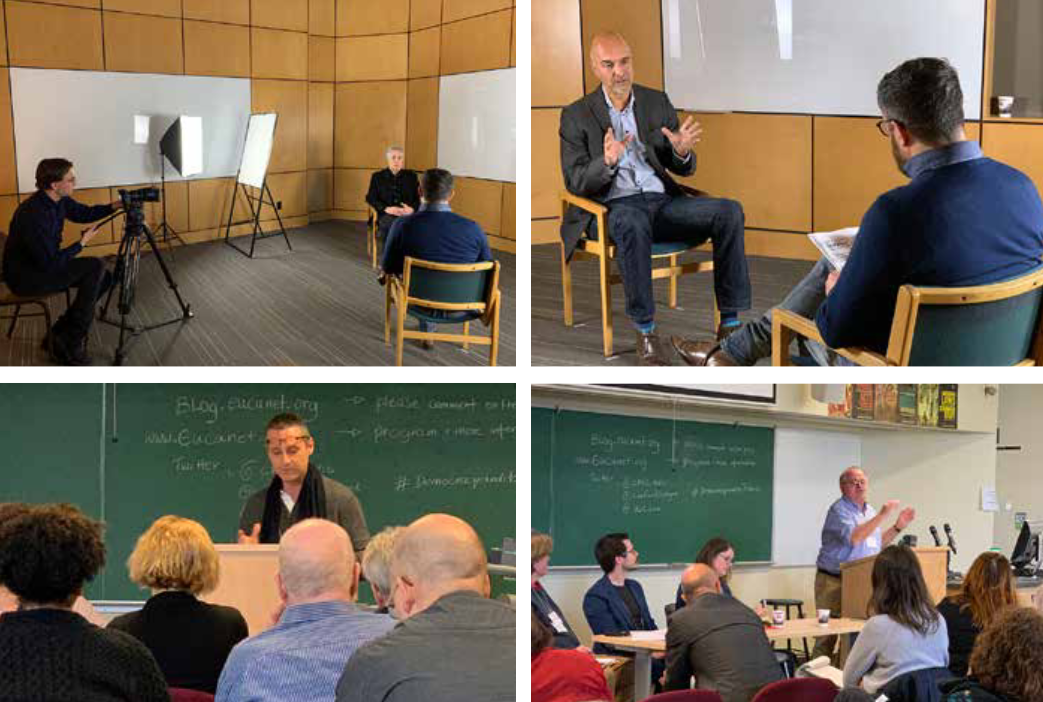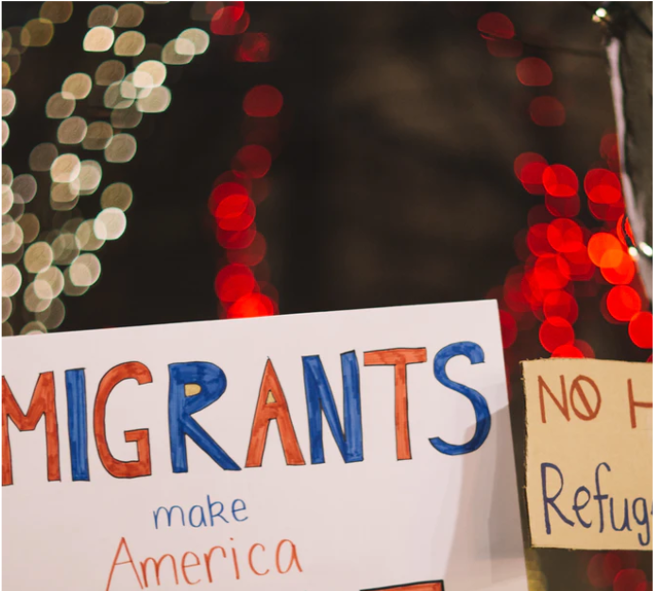Surveillance and Democracy, by Pablo Ouziel
By Pablo Ouziel, Centre for Global Studies at the University of Victoria
I was recently asked by the journal Surveillance & Society, to review the book Surveillance Studies: A Reader (2018), edited by Torin Monahan and David Murakami Wood. As I was writing my review, I could not escape thinking about the implications of modern surveillance for our democratic societies. Without a doubt democracies are being hollowed-out. At the same time, we are witnessing the rise of populist right-wing and far-right parties across the planet. All this is happening, while popular movements engaged in democratization practices and demanding a deepening of democracy in their societies are being systematically surveilled and often brutally repressed.
Anyone who has participated in democratizing protest movements or has had contact with activists and demonstrators working within them, will be aware of the impact surveillance has had on their lives. In many instances, people have been indiscriminately arrested, followed, or charged with crimes which oftentimes they did not commit. A case in point, is one of the protestors that I interviewed years ago for my PhD dissertation on the 15M movement which occupied public squares in 2011. This was a movement demanding “democracia real ya!” (real democracy now!) and shouting “no somos mercancia en manos de politicos y banqueros” (we are not merchandise in the hands of politicians and bankers). The person, I am referring to, a few years after the protests, experienced his house being raided in the middle of the night by SWAT teams from different Spanish security forces. He was arrested in front of his partner and child and was left for three days in a cell without having access to a lawyer, and without being told why he was being arrested. Upon release, he was told that he was facing terrorism charges. His crime, having re-tweeted information that had been previously published on Twitter regarding police infiltration within the 15M movement.
Obviously, this is not something that the majority of the population is likely to learn about, let alone experience, but the fact is that while Spain prides itself on being a democratic society, these kinds of activities are happening with increasing frequency. Sadly, these kinds of incidents bring back memories of a not too distant past in which the whole world understood Spain as a dictatorship. Unfortunately, this is not an isolated case. Not only in Spain, but also in the rest of Europe and North America, people who are resisting the hollowing-out of democracy are facing a similar fate.
In Western societies, it is easy for citizens to look at the all surveillant state of China and be repelled by the kind of surveillance practices being implemented there. When from the West we witness through the media the police brutality experienced by protestors in Hong Kong – who for the past few days have occupied the island’s international airport – most find it quite normal to reject both the surveillance measures they are submitted to and the repression they endure. Yet, when similar surveillance and repression tactics are used in the West, I often witness too much tolerance – by the majority of the population – towards the actions of the security forces and other state institutions. It seems, in many cases, as if the mere fact that those in power say we live in democratic societies, serves to justify the kind of treatment those subverting the status quo are facing. It is this observation, which leads me to think more broadly about surveillance practices and the kinds of consequences they are having on different demoi.
What interests me about surveillance within the context of democracies is the fact that in our technological societies what we are experiencing is dataveillance; the systemic use of personal data systems to investigate or monitor the actions or communications of one or more people. The danger with this kind of surveillance is that it facilitates the large-scale combination of data points and the construction of profiles that oftentimes are used to discriminate against people even in advance of any wrongdoing. This sorting of people happens in unequal ways that obscure the inherent biases of the systems being used. Like in all other societies, in democracies it is subversives, minorities, and the poor that are most affected by this kind of profiling.
It is true that when we study surveillance and try to define it we come to the realization that as a concept it escapes definition. Nevertheless, when we read the literature, amidst family-resemblances (similarities and differences), it becomes quickly apparent that most people studying it agree that it is one of the dominant modes of ordering in the post-modern era. New technologies allow surveillance to be technologically mediated, frequently undetectable, of an involuntary nature, and often automated. The information rich environments we are creating with embedded sensors, mobile computers and algorithmic processes help subject whole populations to automated management. Increasingly embedded in material infrastructures, these surveillance practices help individualize people and commodify data in a manner that exponentially increases the potential of corporations and states to sort populations. What is most problematic about this, is that while such technologies are often described as neutral, the mechanisms of discrimination they hide continue to operate in the background. This reality exposes marginalized populations to augmented forms of oppression, violence and control. Added to this, since 9/11, governance has undergone huge transformations towards a model of risk management aiming to discern threats in advance. This move has in turns consolidated racialized discrimination and social inequality.
We know that surveillance played a key role in the rise of the modern nation-state. It served the purpose of identifying and governing populations, under the implied contract between state and citizens that in exchange for knowing its citizens the state would protect their bodies, property, and rights. We also know that colonial states used their colonies to test forms of surveillance which would be later implemented in the metropolis. We can also read about the role that surveillance played in slavery – hot-iron branding and lantern laws regulating movement are just two examples. In addition, we have seen how in totalitarian societies the culture of fear and suspicion generated by surveillance remained for decades following democratization processes. The case of East Germany following the fall of the Berlin Wall illustrates this clearly. Yet, for most citizens in the contemporary West these events seem too distant to be relevant.
We remain distant when we read about the kinds of atrocities that the surveillance of South African apartheid made possible. Or when we see the surveillance and control methods deployed on the Palestinian people by the State of Israel. Generally, we think it has nothing to do with us. There is nothing we can do about it and most importantly it does not apply to life in our Western societies. Yet, most of us are aware of kind of surveillance the United States National Security Agency has been practicing illegally for decades; the leaks by Chelsea Manning, made available by investigative Glenn Greenwald leave little room for doubt. Notwithstanding, not even such revelations about the not so benevolent nature of the state lead us to a serious social discussion on the kind of societies we are and want to become.
There seems to be little fighting back going on. Our hyper-accelerated societies seldom give us time to focus on such issues for too long. There are many ways to obfuscate or evade surveillance systems, but one of the biggest problems we face has to do with our social imaginary. Despite the numerous warnings we receive about the dangers of surveillance, until we can imagine our societies working in a different manner, surveillance seems to be here to stay. It will continue to enter into more domains of our life, as we embrace or ignore it without too much critical analysis. Considering this as the most likely scenario, I think it remains our responsibility to imagine what democratizing surveillance practices can look like. Perhaps by doing this we can begin to prefigure how as democratic citizens we might respond to it, and how democratic surveillance assemblages can be co-constructed by all those surveilled by them. I fear that if we do not address this urgent issue in depth, the hollowing-out of democracy will continue at an ever-accelerating pace supported by the surveillance complex we have silently helped to construct.
About the author: Pablo Ouziel is co-founder of the Cedar Trees Institute at the University of Victoria. He is Associate Fellowship at the Centre for Global Studies at the same university and is a visiting fellow at the Universitat Pompeu Fabra in Barcelona, Spain and the University of Southampton in the United Kingdom. Pablo’s research interests include public philosophy, collective presences, horizontality, nonviolence and civic democracy. By standing within the tradition of public philosophy, the core of his work is centred on excavating networks of individuals governing themselves in numerous ways that supersede our current structures of representative government











Leave a Reply
Want to join the discussion?Feel free to contribute!